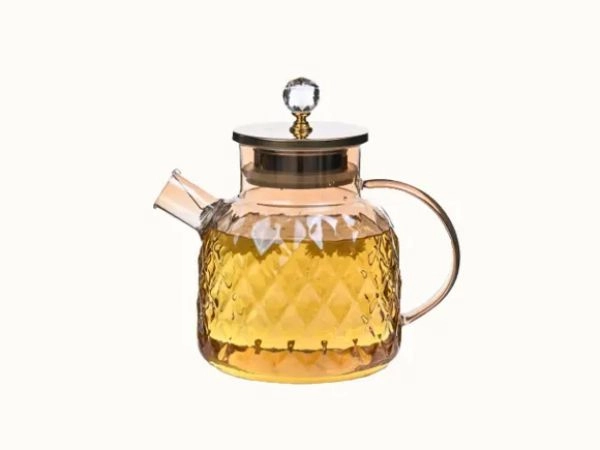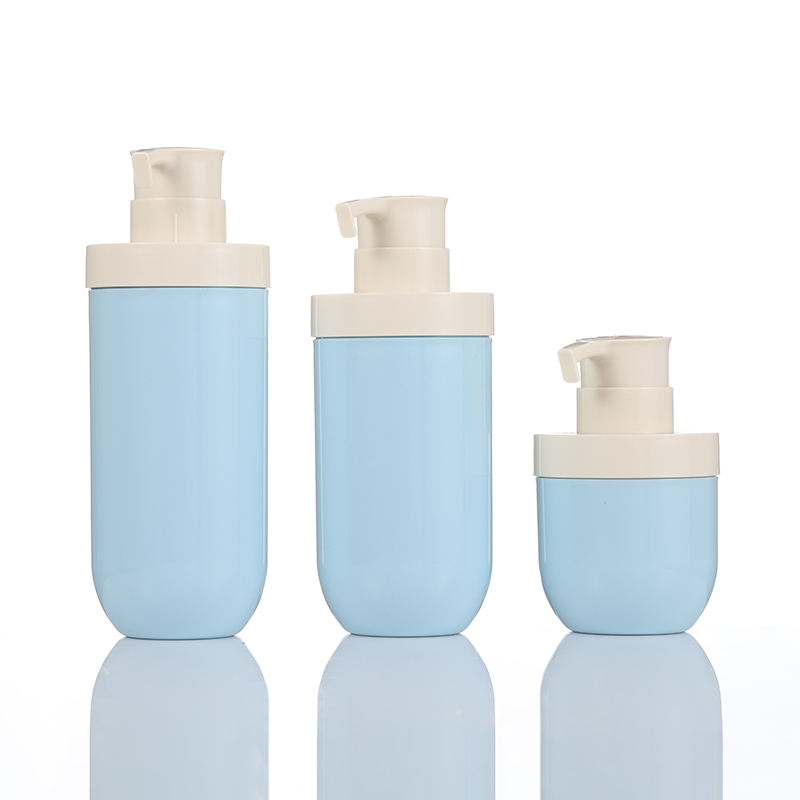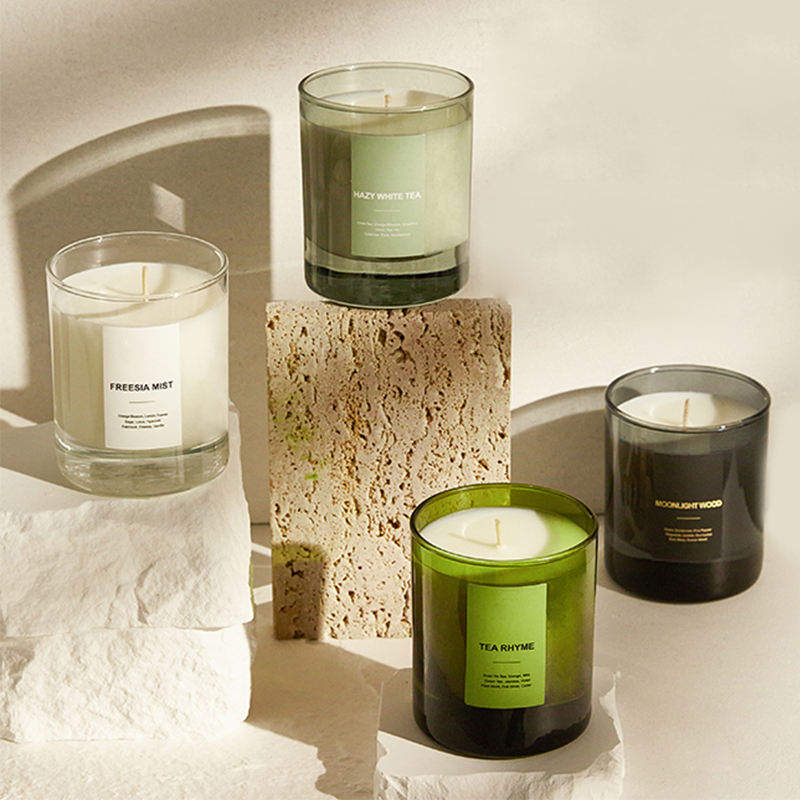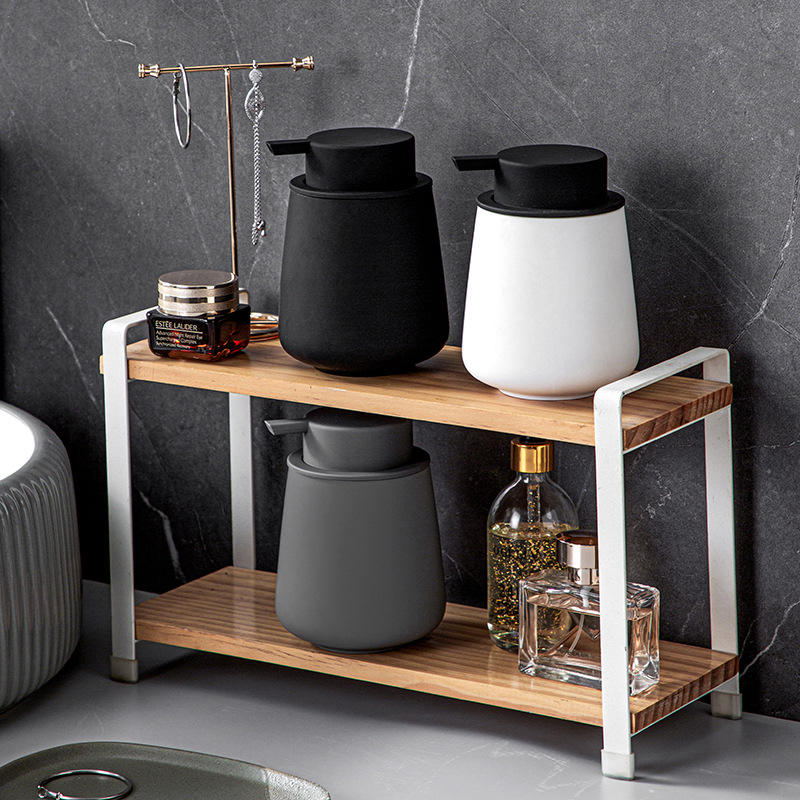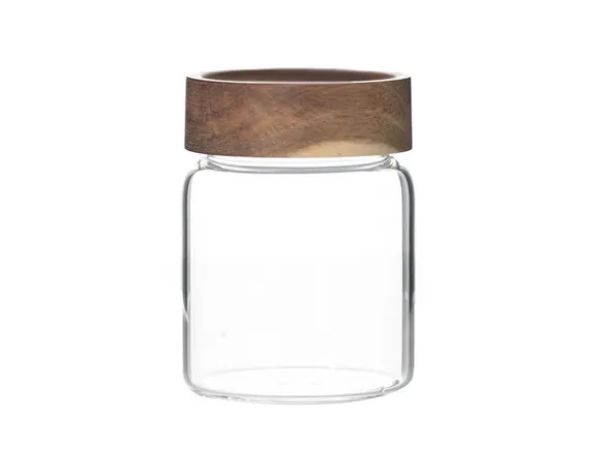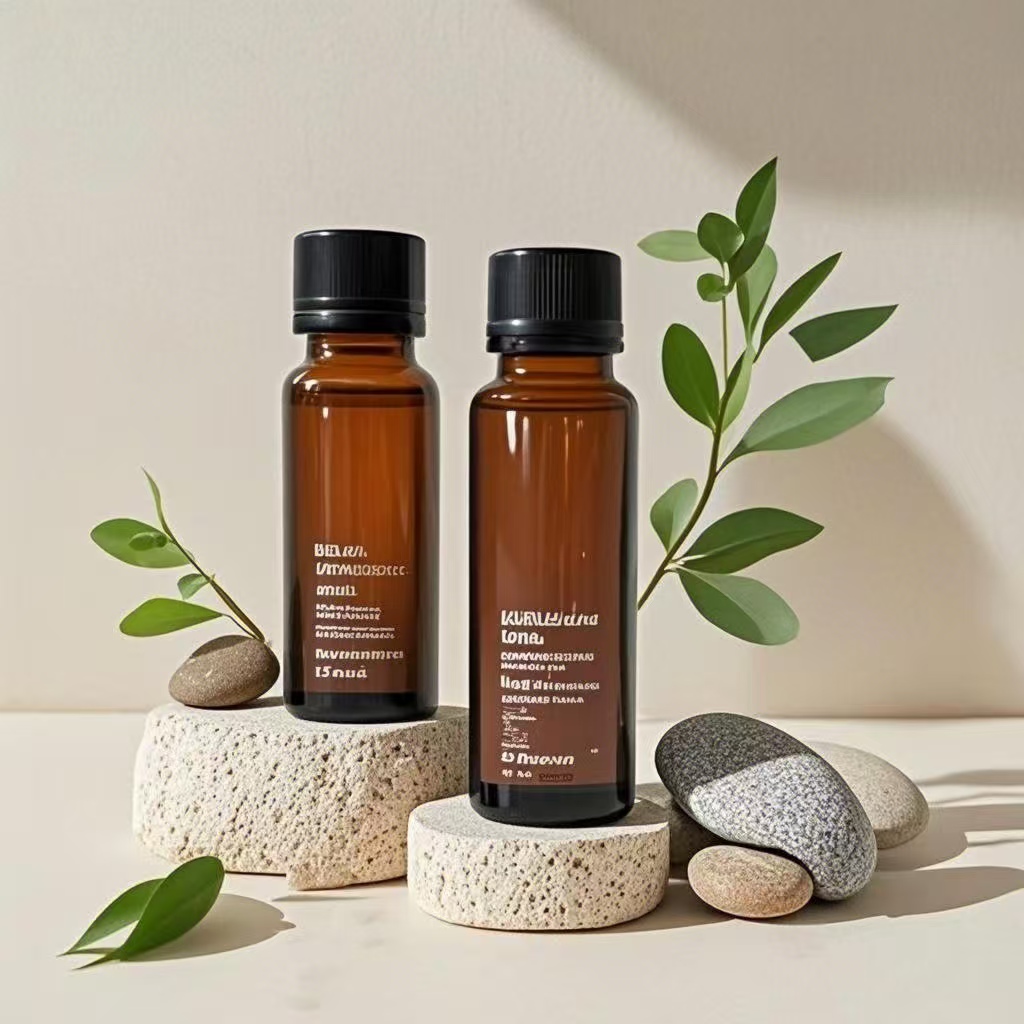The global essential oil market is booming—valued at over $21 billion in 2023 and projected to grow at a CAGR of 9.4% through 2030, according to Grand View Research. For brands competing in this crowded space, packaging isn’t just a container—it’s a silent salesperson, a protector of product integrity, and a cornerstone of brand recognition. Among all packaging choices, amber glass bottles stand out as the gold standard: their amber tint blocks harmful UV rays that degrade essential oils’ volatile compounds, preserving potency and shelf life.
But here’s the catch: not all amber essential oil bottles are created equal, and neither are the manufacturers behind them. For brands sourcing in large quantities, bulk essential oil packaging requires a manufacturer with consistent quality control and scalable production. For those looking to build a unique brand identity, private label essential oil bottles—customized with logos, labels, or unique designs—are non-negotiable.
This guide is designed to help essential oil brands, whether new or expanding, navigate the complex process of choosing an amber essential oil bottle manufacturer that checks all boxes: quality, scalability, customization, and reliability. By the end, you’ll know exactly what to look for, how to avoid common pitfalls, and how to turn your packaging partnership into a competitive advantage.
Why Amber Glass Is Non-Negotiable for Essential Oil Packaging (And What Manufacturers Must Deliver)
Before diving into manufacturer selection, it’s critical to understand why amber glass is the industry standard—and what quality benchmarks a top-tier manufacturer must meet. Essential oils are concentrated plant extracts, rich in terpenes, phenols, and other volatile organic compounds (VOCs). These compounds are sensitive to light, heat, and oxygen: exposure to UV light, for example, can break down these molecules, reducing the oil’s therapeutic benefits, altering its scent, and even creating harmful byproducts.
Amber glass solves this problem by filtering out 99% of UV radiation, according to testing by the Glass Packaging Institute. But not all amber glass offers the same protection. A reputable amber essential oil bottle manufacturer will use high-quality, food-grade (or pharmaceutical-grade) amber glass that meets two key standards:
-
Lead-free and cadmium-free: Essential oils are lipophilic (oil-soluble), meaning they can absorb heavy metals from low-quality glass. This not only compromises safety but also violates regulatory standards like the FDA’s food contact rules and the EU’s REACH regulations.
-
Thickness consistency: Thin or uneven glass increases the risk of breakage during shipping (a major cost for bulk orders) and may not provide uniform UV protection. Look for manufacturers that use automated glassblowing processes to ensure consistent wall thickness across every bottle in a bulk order.
Beyond UV protection, amber glass also offers chemical inertness—unlike plastic, it won’t react with essential oils or leach chemicals into the product. For brands prioritizing sustainability (a key selling point for 67% of essential oil consumers, per a 2024 Consumer Reports survey), amber glass is 100% recyclable and reusable, aligning with eco-friendly brand values.
In short: the best bulk essential oil packaging starts with high-quality amber glass. Any manufacturer that cuts corners here—using low-grade glass, skipping lead-testing, or producing inconsistent bottles—will harm your product quality and brand reputation.
Key Criteria for Choosing an Amber Essential Oil Bottle Manufacturer: Bulk & Private Label Readiness
Not all manufacturers specialize in both bulk production and private label customization—and for brands that need both, this is a make-or-break factor. Below are the 5 non-negotiable criteria to evaluate when vetting potential partners.
1. Bulk Production Capabilities: Scalability, Consistency, and Cost-Efficiency
Bulk essential oil packaging requires a manufacturer with the infrastructure to handle large orders without sacrificing quality or missing deadlines. Here’s what to verify:
-
Minimum Order Quantities (MOQs): Most manufacturers set MOQs for bulk orders—common ranges are 5,000 to 50,000 bottles. Ensure the manufacturer’s MOQ aligns with your brand’s needs: startups may need lower MOQs (some specialize in 1,000+ orders), while established brands may require 100,000+ bottles per run.
-
Production Capacity: Ask about the manufacturer’s daily/weekly output. A reliable partner should have enough furnaces, molds, and labor to fulfill your order within your timeline—for example, a manufacturer with 5 glassblowing lines can typically produce 50,000 10ml amber bottles in 2 weeks, while a smaller operation may take a month.
-
Quality Control (QC) for Bulk Runs: In bulk production, a single defective mold or batch can ruin thousands of bottles. Look for manufacturers with a documented QC process: automated inspections for cracks or uneven glass, manual spot-checks for lead content, and batch testing for UV protection. Ask to see QC reports from past orders—reputable manufacturers will share these freely.
-
Bulk Pricing Transparency: Cost is a key factor in bulk sourcing, but avoid choosing the cheapest option outright. Look for manufacturers that offer tiered pricing (e.g., $0.80 per bottle for 5,000 units, $0.65 for 20,000 units) and transparent quotes that include mold fees (if custom sizes are needed) and shipping costs. Hidden fees for rush orders or rework can quickly eat into your profit margins.
2. Private Label Expertise: Customization That Aligns With Your Brand
Private label essential oil bottles are your chance to stand out on store shelves or e-commerce listings. A manufacturer with strong private label capabilities will turn your brand vision into reality—without costly delays or missteps. Key customization services to look for:
-
Labeling and Printing: The most common private label needs are custom labels or direct printing on bottles. Ask about options:
-
Pressure-sensitive labels: Ideal for brands that want flexibility (e.g., changing designs seasonally). Ensure the manufacturer uses oil-resistant adhesive—standard labels can peel off when exposed to essential oil residue.
-
Screen printing: Directly applies ink to the glass for a premium, long-lasting finish. Look for manufacturers that can handle multiple colors and fine details (e.g., logos or ingredient lists).
-
Hot stamping: Uses metallic foil for a luxury look—perfect for high-end essential oil brands targeting spas or wellness retailers.
-
-
Custom Bottle Sizes and Shapes: While standard sizes (5ml, 10ml, 30ml, 100ml) are cost-effective, custom shapes (e.g., hexagonal bottles or curved edges) can make your brand instantly recognizable. Ask if the manufacturer offers mold customization—note that custom molds often have higher upfront costs but can pay off in brand differentiation.
-
Cap and Closure Customization: The cap is part of the packaging experience. A good private label manufacturer will offer options like:
-
Child-resistant caps (mandatory for brands selling in the US and EU, per CPSC and EU toy safety regulations).
-
Dropper caps (essential for precise dosing—look for glass droppers with rubber bulbs, as plastic droppers can interact with oils).
-
Tamper-evident seals (builds trust with consumers by proving the product hasn’t been opened).
-
-
Design Support: If your brand doesn’t have an in-house design team, look for manufacturers that offer free or low-cost design assistance. They should understand packaging regulations (e.g., FDA-required ingredient labels) and can help ensure your design is both visually appealing and compliant.
3. Regulatory Compliance: Avoid Costly Penalties and Reputational Damage
Essential oil packaging is subject to strict regulations worldwide—from material safety to labeling requirements. A reputable amber essential oil bottle manufacturer will be well-versed in these rules and can help you stay compliant. Key regulations to confirm:
-
Food/Pharmaceutical Grade Certification: In the US, the FDA requires packaging for ingestible or topical oils to be “food contact safe.” In the EU, look for compliance with EU Regulation (EC) No 1935/2004, which governs materials in contact with food.
-
Lead and Heavy Metal Testing: Ensure the manufacturer provides Certificates of Analysis (CoAs) proving their amber glass is lead-free and cadmium-free. This is non-negotiable—non-compliant bottles can lead to product recalls and legal action.
-
Labeling Compliance: For private label bottles, the manufacturer should understand region-specific labeling rules: e.g., the EU’s CLP Regulation (requires hazard symbols for certain oils like cinnamon bark) or California’s Prop 65 (requires warnings for chemicals that may cause cancer). A manufacturer that can advise on these details will save you from costly reprints.
4. Supply Chain Reliability: On-Time Delivery for Your Bulk Orders
Nothing derails a product launch or inventory restock like delayed packaging. When evaluating manufacturers, assess their supply chain resilience:
-
Raw Material Sourcing: Ask where they source their amber glass raw materials (e.g., silica sand, soda ash). Manufacturers that have long-term relationships with suppliers are less likely to face shortages.
-
Lead Times: Get clear timelines for bulk orders: e.g., 2–3 weeks for standard bottles with basic labels, 4–6 weeks for custom molds or complex printing. Avoid manufacturers that give vague estimates (e.g., “4–8 weeks”)—this is a red flag for poor production planning.
-
Shipping and Logistics: For international brands, choose a manufacturer with experience in global shipping. They should handle customs documentation (e.g., commercial invoices, certificates of origin) and offer shipping options (e.g., sea freight for cost savings on bulk orders, air freight for rush needs). Some manufacturers even partner with 3PLs (third-party logistics) to store your bulk packaging and ship it to your facility as needed—this can reduce your storage costs.
5. Customer Reviews and References: Proof of Past Success
The best way to gauge a manufacturer’s reliability is to hear from their past clients. Ask for:
-
Case Studies: Look for case studies of brands similar to yours (e.g., a startup that scaled from 5,000 to 50,000 bulk bottles, or a brand that launched a private label line with custom amber bottles).
-
Client References: Reach out to 2–3 references to ask: Did the manufacturer meet deadlines? Was the quality consistent? How did they handle issues (e.g., defective bottles)?
-
Online Reviews: Check platforms like Google My Business, Alibaba (if sourcing from Asia), or industry forums (e.g., the National Association for Holistic Aromatherapy). Look for patterns—consistent complaints about late deliveries or poor QC are dealbreakers.
Common Mistakes to Avoid When Sourcing Bulk Private Label Amber Essential Oil Bottles
Even with thorough vetting, brands often make avoidable mistakes that cost time and money. Here are the top pitfalls to steer clear of:
Mistake 1: Prioritizing Price Over Quality
It’s tempting to choose the cheapest bulk quote, but low-cost manufacturers often cut corners: using low-grade glass that leaches chemicals, skipping QC checks, or using inferior adhesives for labels. A $0.10 savings per bottle might seem like a win—until you face a product recall because the bottles are lead-contaminated, or customers return orders because labels peel off. Invest in quality upfront to protect your brand.
Mistake 2: Ignoring MOQ Flexibility
Many startups order more bulk bottles than they need to meet a manufacturer’s high MOQ, tying up cash in inventory. Instead, look for manufacturers that offer “MOQ tiers” or work with small-batch partners for initial orders. For example, you could order 1,000 private label bottles from a small manufacturer to test the market, then scale to 10,000 with a larger manufacturer once demand grows.
Mistake 3: Skipping Sample Testing
Never place a bulk order without testing a sample first. Request a physical sample of the amber bottle, cap, and printed label—test it for:
-
UV protection: Place a drop of light-sensitive oil (e.g., bergamot) in the bottle and leave it in direct sunlight for 48 hours. If the oil’s scent or color changes, the glass is low-quality.
-
Leakage: Fill the bottle with water, attach the cap, and shake it vigorously. If it leaks, the cap doesn’t seal properly.
-
Label durability: Rub the label with a damp cloth or a small amount of essential oil—if it smudges or peels, the adhesive or ink is inferior.
Mistake 4: Overcomplicating Private Label Design
While customization is key, overly complex designs can increase costs and delays. For example, a 5-color screen print will cost more than a 2-color design, and a custom bottle shape requires expensive mold fees. Start with simple, impactful customization—e.g., a logo in your brand color and a clear, compliant label—then add complexity as your brand grows.
How to Partner With Your Manufacturer for Long-Term Success
Choosing the right amber essential oil bottle manufacturer is just the first step—building a strong partnership will ensure smooth operations and ongoing improvement. Here’s how to foster a productive relationship:
1. Communicate Your Brand Goals Clearly
Share your long-term vision with the manufacturer: Are you planning to launch new oil blends next year? Do you want to expand into international markets? A manufacturer that understands your goals can anticipate your needs—e.g., prepping for larger bulk orders or advising on region-specific compliance.
2. Establish Clear SLAs (Service Level Agreements)
Put expectations in writing: include deadlines, quality standards, defect rates (e.g., “no more than 0.5% defective bottles in a bulk order”), and remedies for issues (e.g., free replacement of defective units). SLAs reduce misunderstandings and give you leverage if problems arise.
3. Provide Feedback Regularly
After each bulk order, share feedback with the manufacturer: What worked? What didn’t? For example, if customers loved the new dropper cap but complained about label adhesion, the manufacturer can adjust the adhesive for future orders. Most manufacturers value this feedback—they want to retain long-term clients.
4. Explore Co-Creation Opportunities
As your brand grows, work with your manufacturer to innovate. For example, you could collaborate on a sustainable packaging line (e.g., recycled amber glass) or a new closure design that improves user experience. Co-created solutions can give you a unique selling point in the market.
Conclusion
Your amber essential oil bottle manufacturer is more than a supplier—they’re a partner in your brand’s success. The right manufacturer will deliver high-quality bulk packaging that protects your products, offer private label customization that makes your brand stand out, and navigate regulatory hurdles that could otherwise derail your business.
By focusing on quality, scalability, customization, compliance, and reliability, you’ll avoid common pitfalls and build a packaging strategy that supports growth. Remember: in the essential oil market, packaging isn’t just a container—it’s a reflection of your brand’s commitment to quality and customer trust.
Ready to take the next step? Use the criteria in this guide to shortlist 3–5 manufacturers, request samples, and ask for references. The time you invest in vetting will pay off in smoother operations, happier customers, and a stronger bottom line.
I can help you refine the SEO keywords in this blog to better target your specific audience (e.g., small-batch essential oil brands or EU-based retailers) or adjust the private label customization section to highlight your brand’s unique needs. Would you like me to do that?



